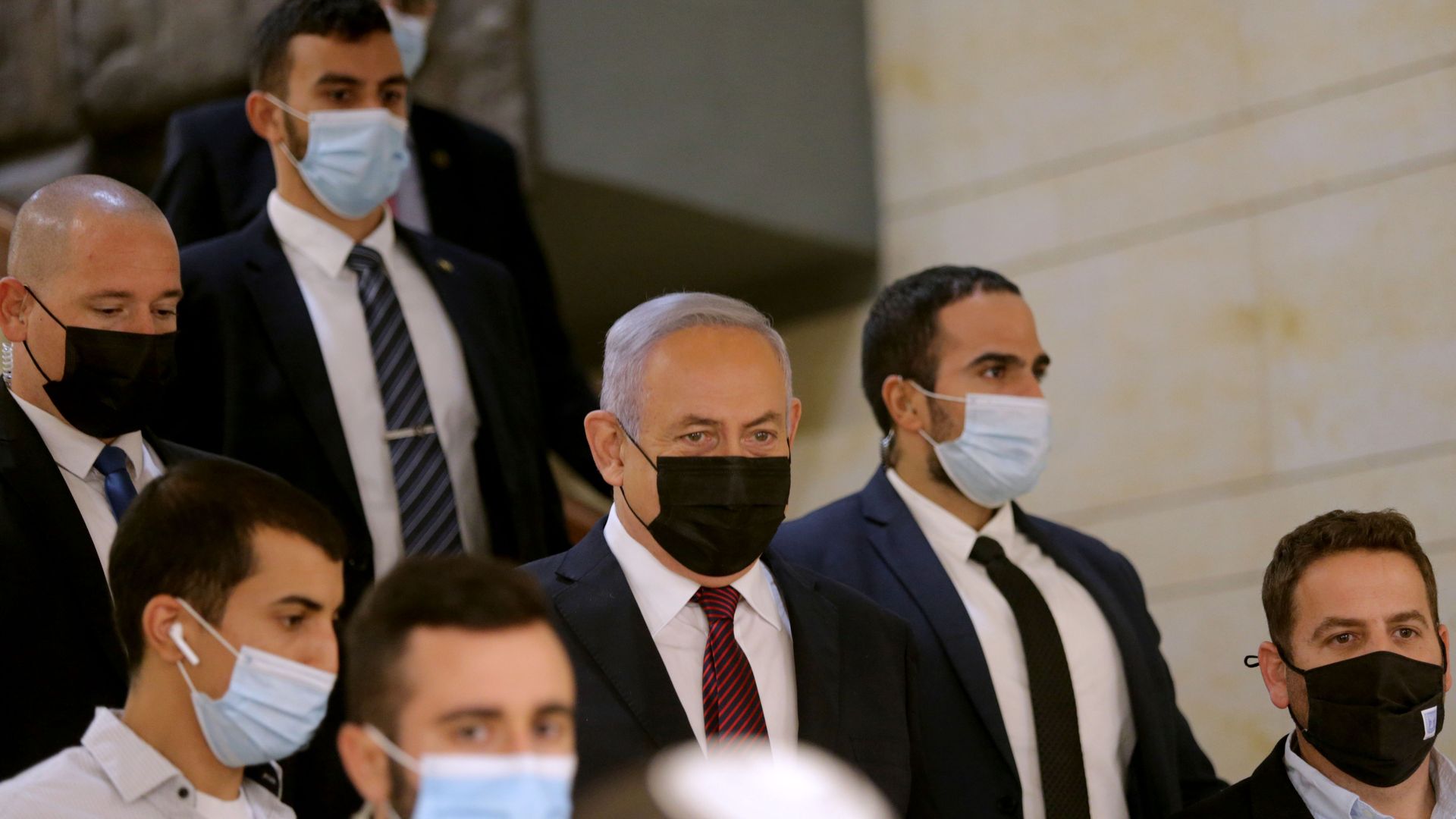Israeli parliament opts for early elections in preliminary vote
Add Axios as your preferred source to
see more of our stories on Google.

Netanyahu (C) arrives in parliament today. Photo: Alex Kolomiensky/Pool/AFP via Getty
After six months of a dysfunctional power-sharing government, Israel is headed for its fourth elections in less than two years, most likely at the end of March.
Driving the news: The Knesset voted 61-54 today to approve the preliminary reading of a bill to dissolve the parliament and call new elections. Benny Gantz's Blue and White party supported the bill while Prime Minister Benjamin Netanyahu's Likud and the rest of the coalition voted against.
- This is a first step towards early elections, but the bill needs to pass three more votes. That leaves two or three weeks to find a solution to the coalition crisis, but the chances of that happening are very low.
The big picture: The government's collapse was precipitated by Netanyahu's refusal to pass a 2021 budget, which would have locked in the rotation agreement under which Gantz was to become prime minister next November.
- Gantz accused Netanyahu last night of being a "serial promise-breaker" who had "led on the Israeli people."
- Netanyahu thinks new elections will help him deal with his corruption trial, which is due to resume in February.
- According to polls, most Israelis consider Netanyahu responsible for the early elections.
The state of play: Despite his weakening poll numbers, Netanyahu starts the election campaign with no significant opponent and with the opposition fractured.
- The latest polls show Netanyahu’s right-wing bloc leading with at least 65 seats — a solid majority which could allow Netanyahu to take steps to further postpone his trial or cancel it altogether through legislation.
What to watch: Netanyahu’s main political rival, Naftali Bennett, comes from the right.
- Polls project Bennet's party to finish second to Likud with around 22 seats, pulling in votes from disappointed Blue and White and Likud supporters who approve of Bennett’s policies on countering COVID-19 and fixing the economy.
- Netanyahu will focus on winning back some of those voters and shrinking Bennett's vote share.
- The center-left is divided and opposition leader Yair Lapid isn’t perceived as a credible alternative to Netanyahu. The biggest challenge for the opposition will be trying to find a way to run together under one list in order to mobilize their disillusioned voters.
The election campaign is likely to take place during a third wave of COVID-19 and possibly even a third lockdown. That could have huge consequences for turn-out and on voters who aren't committed to one party.
